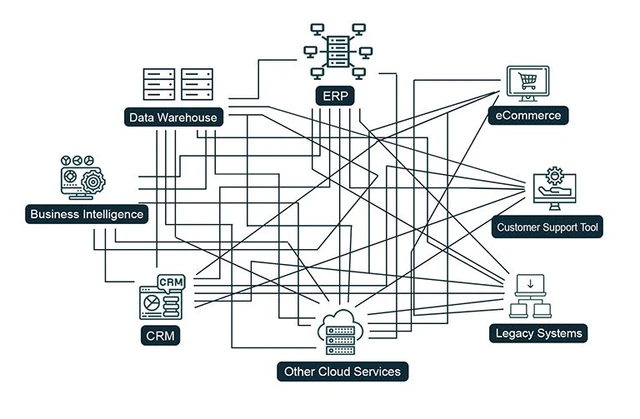Blog Library
Learn best practices and discover new strategies for product analytics so you can drive growth for your product.

In this blog, we will explore the critical role of compliance and security in enterprise events. As the events industry becomes increasingly complex and data-driven, adhering to regulations like GDPR, CCPA, and HIPAA, while implementing robust security protocols, is essential for protecting sensitive data, maintaining trust, and ensuring event success.

In this blog, we explore the importance of onsite badge printing for events, offering benefits like flexibility, cost-effectiveness, and enhanced professionalism. By utilizing advanced badge printers and software, organizers can streamline registration, accommodate last-minute changes, and improve attendee experience. Learn how to choose the right badge printing system for your event.

In this blog, we explore five sustainable strategies for onsite badge printing that can help reduce waste and environmental impact at your events. From using eco-friendly materials to implementing on-demand printing and recycling programs, these approaches ensure a greener event experience while maintaining efficiency and enhancing attendee satisfaction.

In this blog, we’ll explore how to create effective event badges that combine functionality, branding, and sustainability. From types of badges to design tips, materials, and printing solutions like Azavista’s onsite software, this guide ensures your badges enhance attendee experience, streamline networking, and represent your event with professionalism and style.

The Next Frontier: 11 Emerging Trends in Onsite Event Check-In
In this blog, we explore the future of onsite event check-in, where technology, sustainability, and personalization converge. From contactless check-ins using QR codes and mobile apps to biometric security and augmented reality, these trends promise enhanced efficiency, engagement, and eco-conscious practices. Stay ahead by embracing these innovations for a seamless event experience.

Sustainability and Corporate Social Responsibility in Enterprise Events
In this blog, we explore the importance of sustainability and CSR in corporate events. As businesses seek to reduce environmental impact, sustainable event management solutions, such as eco-friendly venue selection, waste reduction, and carbon offset programs, are essential. Technology plays a crucial role in streamlining efforts and achieving CSR goals, ensuring a greener, more responsible future.

The Future of Enterprise Events: Trends to Watch
In this blog, we explore key trends shaping the future of enterprise events, including all-in-one event management solutions, AI integration, virtual and hybrid events, personalized experiences, sustainability, and security. These innovations are transforming how events are planned, executed, and analyzed, offering new opportunities for engagement, efficiency, and impact.

Integrating Event Management Software with Enterprise IT Ecosystems
In this blog, we will explore how integrating event management software with existing IT systems like CRM, ERP, and marketing platforms can enhance workflow efficiency, improve data accuracy, and drive overall event success. Learn about the benefits, challenges, best practices, and emerging trends in seamless integration for your business.

Seamless Success: Why All-in-One Event Platforms Are the Ultimate Solution for Your Event Needs
In this blog, we explore the many advantages of adopting an all-in-one event registration platform. These platforms streamline the entire event lifecycle, from registration to post-event analysis, by consolidating all necessary tools into one system. By offering a unified experience, they improve efficiency, reduce costs, and enhance attendee satisfaction. Key features include seamless registration, integrated marketing tools, real-time analytics, and secure data management.

Stress Management for Event Planners: How All-In-One Solutions Help
In this blog, we explore how all-in-one event management solutions can reduce the stress of event planning. By streamlining time management, enhancing communication, simplifying budget tracking, and easing logistics, these platforms empower planners to focus on creating successful events, reducing cognitive load, and improving job satisfaction for a more fulfilling career.
4o mini

Understanding your Target Audience and Mastering the Art of Event Marketing Magic
Successful event marketing today requires understanding your audience, crafting a compelling event brand, and using diverse strategies like social media, influencer marketing, and email campaigns. By doing so, you can create an event that not only attracts attendees but ensures they return year after year, making it a must-attend experience.
4o mini

The Flex Factor: How Embracing Event Versatility Skyrockets Your Attendance
In this blog, we explore the power of flexible event strategies to maximize attendance. With virtual, hybrid, and in-person formats, event planners can expand reach and cater to diverse preferences. Offering tiered participation, personalized experiences, and leveraging social media and community building can significantly boost registration numbers and ensure unforgettable, engaging experiences across all platforms.

From Clicks to Attendees: Mastering the Art of Event Registration Page Design
In this blog, we dive into how you can optimize your event registration page to enhance user experience and boost conversions. A well-designed registration page plays a pivotal role in attracting attendees and ensuring the success of your event. Key design strategies include clarity, simplicity, mobile responsiveness, and the strategic use of visuals and testimonials.

The Critical Role of Payment Integrations in the Event Registration Process
In this blog, we emphasize the importance of seamless payment integration for enhancing event experiences. A smooth registration process, backed by secure and reliable payment systems, is crucial for increasing attendee satisfaction and reducing abandoned registrations. With platforms like Azavista supporting top payment systems such as PayPal, Stripe, and Adyen, event organizers can streamline operations, ensure global accessibility.

AI and Machine Learning: Your New BFFs in Enterprise Event Management
In this blog, we explore how AI and ML are revolutionizing event management. These technologies offer personalized experiences, smart recommendations, and seamless event optimization, making it easier for planners to create successful, data-driven events. Discover how AI can help you optimize everything from attendee engagement to resource management!

Scaling Event Management for Large Enterprises
Managing large-scale events requires precise planning and execution. As enterprises expand, so does the need for efficient event management solutions. Enterprise-level software streamlines the process, offering features like advanced data analytics, robust security, seamless integration with








